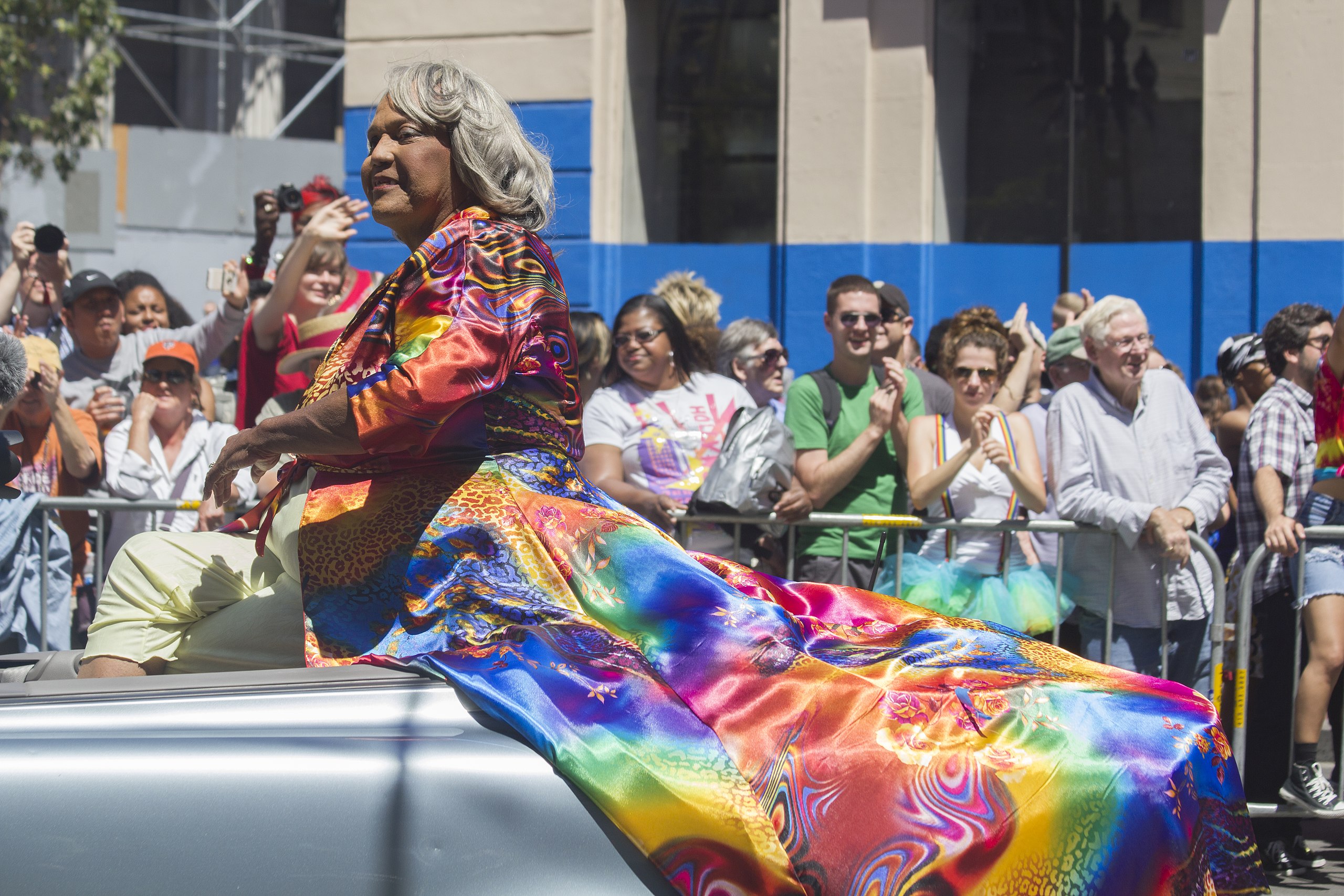As a Black trans person and long-time resident of San Francisco, I was excited for the opportunity to review Miss Major Speaks. While I haven’t had the honor of meeting Miss Major Griffin-Gracy in person, I have met and worked with many trans folks whose lives she has touched, several of whom are named in the book’s Acknowledgements.

After a detailed introduction by Major’s dear friend and assistant Toshio Meronek, Miss Major Speaks takes the form of a series of conversations between the two. Major, who turned 82 years old in October 2022, speaks candidly about her life experiences as a Black trans woman, her feelings about—and resistance to—racist and transphobic oppression, and her wishes for the community.
Throughout Miss Major Speaks, Major is fiercely unapologetic about what she and other “gurls”—the term she uses for trans women—need to do to survive.
One of Major’s many contributions to the community was her leadership of the Transgender, Gender-Variant, and Intersex Justice Project (TGIJP), the San Francisco-based non-profit founded by Alex Lee in 2004. Major took over as director of the TGIJP in 2005. The organization focuses particularly on helping currently and formerly incarcerated Black and Brown trans women. They also advocate for the abolition of prisons entirely.
“At TGIJP we decided that we were an abolitionist group of people who don’t need prisons at all. They weren’t built for our protection or safety. They are still not there for our protection and safety.” – Major
Major goes into great detail about police and prisons in Miss Major Speaks. Being a Black trans woman and doing sex work made her a frequent target of police harassment. Police officers and prison guards routinely demanded oral sex, and one cop stripped her naked and pushed her into the street in broad daylight. Major once served five years in maximum security, including several months in solitary confinement. During this time she befriended and was mentored by fellow inmate Frank “Big Black” Smith, a Black Panther and organizer of the Attica prison rebellion.
Due to their historical and ongoing abuse and oppression, Major will no longer participate in Pride events if police are present. She is unimpressed and unswayed by the attempts of some police departments to court favor with the LGBTQ community.
“The anguish, and the hurt, and the reason why Pride started in the first place—it was an anti-cop event. Look, yes—I know there are trans police officers. You have Black people who are police officers, and women police officers. All that’s cute, but guess what: It’s blue first, your other allegiances second.” – Major
The issue of police at Pride has been an ongoing controversy here in San Francisco as well as other cities. In 2016, Janetta Johnson, who succeeded Major as executive director of the TGIJP, joined Black Lives Matter in withdrawing from the San Francisco Pride Parade in response to increased policing at that event.
In 2022, the San Francisco Pride Board initially banned uniformed police officers from marching in the parade. Mayor London Breed (a straight cisgender woman) responded that she would not attend the parade out of respect for LGBTQ officers. The Board later reached a compromise, allowing some uniformed officers to march.
Miss Major Speaks decries the bigotry of cisgender white gay men and lesbians, who have continually pushed people like herself to the margins of the LGBTQ rights movement. She calls out the “whitewashed” documentaries of the Stonewall riots that center white gays and lesbians, and the Human Rights Campaign’s prioritizing of marriage equality while trans women are living on the streets.
Despite the increased visibility of trans folks in recent years, many in the community still lack stable housing, employment, and healthcare. Major is more concerned with trans folks staying alive and having a safe place to sleep than getting mainstream recognition.
“It was really cute when they put Laverne Cox on the cover of Time magazine back in 2014, but I can’t help but think, what has that done for the average gurl on the street? Mainstream visibility hasn’t helped our community at large.” – Major
Though she has faced many struggles in her eight decades on Earth, Major’s resilience, optimism, and often bawdy humor shine through in Miss Major Speaks. She says she has never suffered from depression. The tales of her escapades are generously peppered with obscenities. She is thoroughly unconcerned about shocking people.
Miss Major Speaks is a powerful and enlightening read. As I write this review, it is nearing the annual Trans Day of Remembrance, November 20, when we honor those lost in the past year to anti-trans violence. I am hopeful that if more people read and heed Miss Major’s words, the world will become a safer place for trans people.
Miss Major Speaks: The Life and Legacy of a Black Trans Revolutionary is available for pre-order now with a release date of 16th May 2023.












